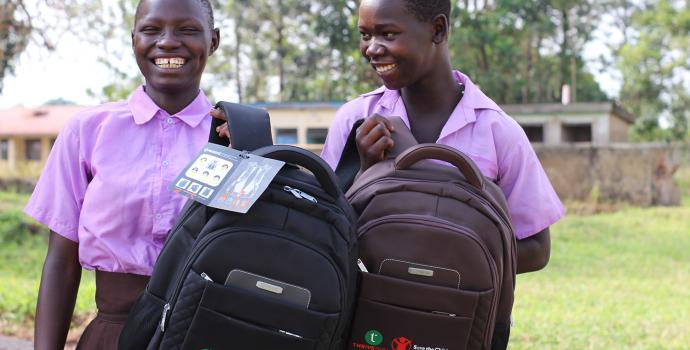HEART project transforming lives of refugee children
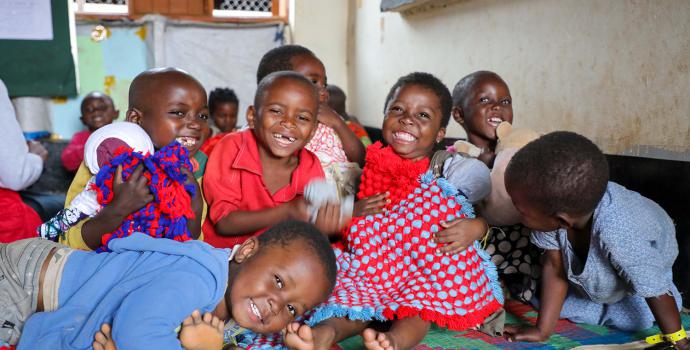
In 2007, Antonet Nyirabunane, 41, fled the Democratic Republic of Congo (DRC) after a war broke out between the Congolese government and the M23 rebels.
The conflict between the two parties forced Nyirabunane and her two children to look for safety at the Ugandan border in Bunagana.
She and her children were later picked up by the refugee response team at the border and transferred to Nakivale Refugee Settlement, Isingiro District where she was reunited with her husband who had also fled. Ten years later, Nyinabunane delivered a bouncing baby boy and was named Amos.
The newborn had no health complications at birth until he reached three years of age. He developed stomach complications which prompted the parents to take him to Mbarara Regional Referral Hospital for treatment and had an operation due to intestinal blockage.
“In February 2023, we took him to Mbarara Regional Referral Hospital (MRRH) for an operation which was done but immediately after the operation, his right arm got paralyzed, could not talk anymore, and started hiding himself from other children,” Nyinabunane says.
Before he got sick, Ishimwe used to be a lovely boy who played and socialised with other children but after the operation, it was all a different story.
“After the operation, he returned home with low self-esteem and little love for himself, could not sit because we had spent three months in the hospital and he looked miserable,” Nyinabunane says.
Ms Nyinabunane later heard of the Healing and Education through Arts (HEART) Project centre that was put up by the Save the Children to help refugee children in Nakivale Refugee Settlement to deal with stress and relay them with life skills that can help them live better in society.
“I brought him to the centre in April, 2023 so that he can join other children and be active, she adds. Today, Amos can speak and socialize with the rest of the children. Thanks to HEART activities .
“He speaks like others, he no longer looks miserable though his arm is still paralyzed. He has learnt how to write and next year he will start going to school,” she says.
This centre helps children to develop love for each other as well as developing self-love.
Amos is among the hundred children in Nakivale Refugee Settlement and other refugee settlements who need healing and skills that can change their lives.
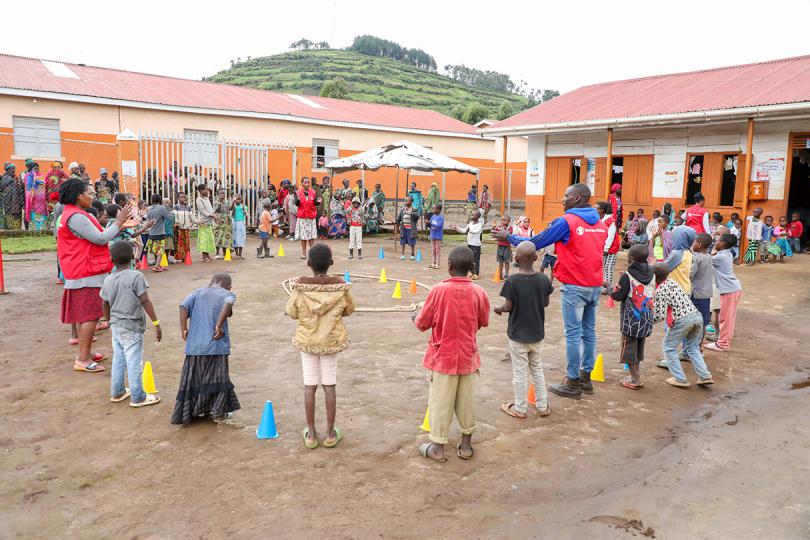
Children participating in HEART activities in Nyakabande refugee settlement
Another Parent, Josephine Majyembere, 30, says her two children liked fighting with others and had bad behaviors in the community but since joining the Heart activities where they would be taught interpersonal skills, life and life-changing skills, they have changed.
“My children used to disrespect people in the camp and misbehave all the time but since joining the heart project, they have changed for the better,” she says.
Majyembere says her children never liked going to school but because of the psychosocial support they received from the Heart activities, they are currently in school and doing well.
“One of my children used to come home crying that she had been beaten by others while at school and would be bruised all the time but since she started participating in the heart activities, she has become friendly and loves school now,” she adds.
Godance 17, who completed her Primary Seven in the recently concluded Primary Leaving Examinations (PLE) says the project helped her concentrate in the class and focus on education.
“HEART helped me know everything including music, dance and drama, singing, painting, drawing, and making friends due to the socialization component that the facilitators take us through,” she says.
“The project helped me to learn how to work with other pupils at school which improved my confidence and drawing skills have highly improved,” she says, adding that she easily learned the importance of sharing with other students in the class to build a good bond.
Eric, 15, also recently completed his Primary Seven this year. When Save the Children International started the Heart interventions in the camp, he was in Primary Six but the skills gained from the project activities helped him accomplish other tasks at school like playing football and concentrating in class.
“I did not know how to speak in public but now I am confident. This project has taught me how to help other people and respect parents which was never in me,” he says.
He adds “Among other life skills he has learned from the HEART is games that help him to grow psychologically which includes draft, Ludo and this helped to reduce my low self-esteem.”
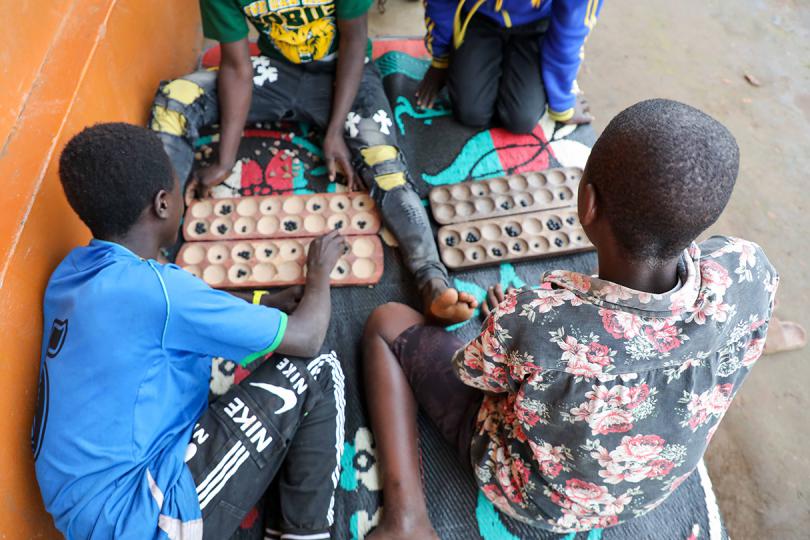
Psychosocial support children receive from the Heart activities has motivated them to stay in school
Jaonita 17, reveals that she used to stay alone because of her parents and her refugee status which has tremendously changed due to the project.
“I used to sit home without anything to do and I would always be lonely and angry all the time because my parents were rude to me. But when Save the Children came and put up a tent where children would converge, I joined and since then I have learned many things including singing and when I get annoyed, I start singing and the moods change,” she says.
The Heart Project activities have since brought peace and love to their family because parents and other family members have learned how to appreciate each other.
Bolingo Slonge 23, a Child Friendly Space (CFS) facilitator says through the programme, she has learned how to appreciate people despite their background.
“I used to undermine people depending on their looks without knowing their background and I never had love for children, but since I started working with children on this project, I have developed love for children and I am respectful,” she reveals.
Slonge’s role in the project as facilitator is to mobilise refugee children, register and enroll them in the different activities in the project and ensure that children are both safe while participating in the project activities and on their way back home.
Michael Byaruhanga, 26, a Child-Friendly Space (CFS) facilitator says the project is helping children kill stress and ensure that they easily forget the trauma they go through as refugees.
“This has enabled children in the community to build resilience which helps them to withstand problems faced. Most children come with problems but the activities that we do help them to express their issues most especially through drawing,” he says.
Through drawing, children can tell their stories, which has helped in finding solutions to the challenges faced by the children.
“Some children draw things that they have seen and this helps us to know whether they have problems and we have them solved through referring them to other relevant partners,” he says adding “Since 2022, I have been able to refer 30 cases to child protection committee (CPCS),”
Betty Namugga, a programmes officer, Education and Child Protection at Save the Children in Nakivale in Isingiro District implementing the Heart approach, says since its inception in 2022, about 1700 children have been helped in improving their self-confidence and communication skills.
“The Heart is one of the child protection projects that we have as Save the Children in Nakivale supporting child-friendly spaces where we are providing psychosocial support to children affected by war. We use the heart approach which is healing with education through art where we use expressive arts to support children, process and communicate their life experiences based on different events they have gone through,” she says.
The project engagements according to Namugga are managed by CFS facilitators who are trained in the use of approaches and are also responsible for the engagement of children daily.
“Children are allowed to talk about what they have done and from there, sharing informs the support that they may require. For example, beyond what the Heart project can provide, children are linked to case workers within Save the Children and also they can be referred to other partners who are providing particular support required by the child,” she adds.
Namugga says at arrival and the beginning of the HEART implemetation, children used to have poor social skills, they were fond of fighting and there were several conflicts among them.
“They were fond of using vulgar language and they could steal things around the community but due to continuous engagement in Heart activities, we have realized that children have changed how they socialize with others, they are free with each other,” she says.
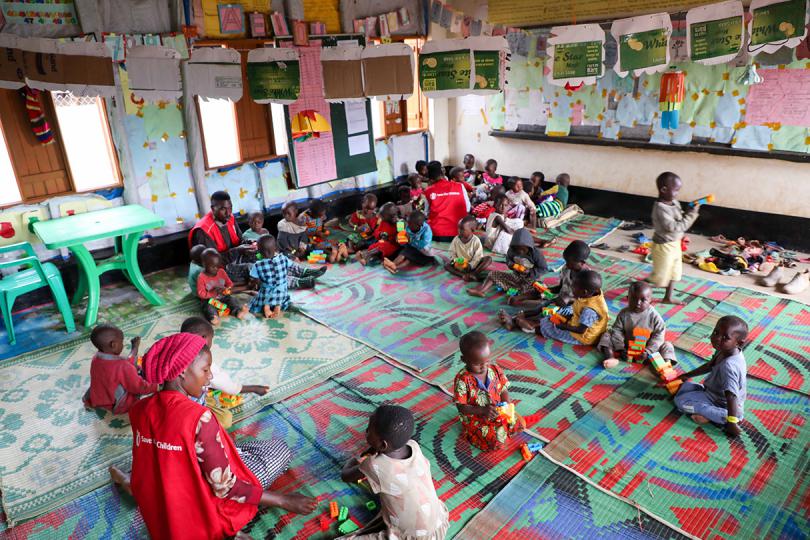
About the project
HEART, which stands for Healing and Education Through the Arts, is an arts-based approach to providing psychosocial support for children affected by serious or chronic stress. It uses the arts to help children process and communicate feelings related to their experiences. The healing process begins when a child shares his or her memories and feelings, either verbally or through artistic expression, with a trusted adult who shows the child compassion and listens in a supportive way.
The end result is a child who feels less isolated, more connected to their peers, and safe amidst the trusted adults in their lives, and the larger community. This in turn can lead to a more confident and secure child, leaving each child more capable, and more likely to learn. In addition to using arts for healing, HEART also uses arts-based creative learning methods to make education more interactive and fun in math, vocabulary, literacy, history, and other subject areas. Furthermore, HEART also uses the arts for fun, to create entertaining and engaging activities and to introduce children to local cultural arts traditions. The teacher/facilitator in a HEART program does not teach the children how to paint, draw, dance, sing, etc. and does not grade the children on their artwork, as would be the case if this were an art education class.




